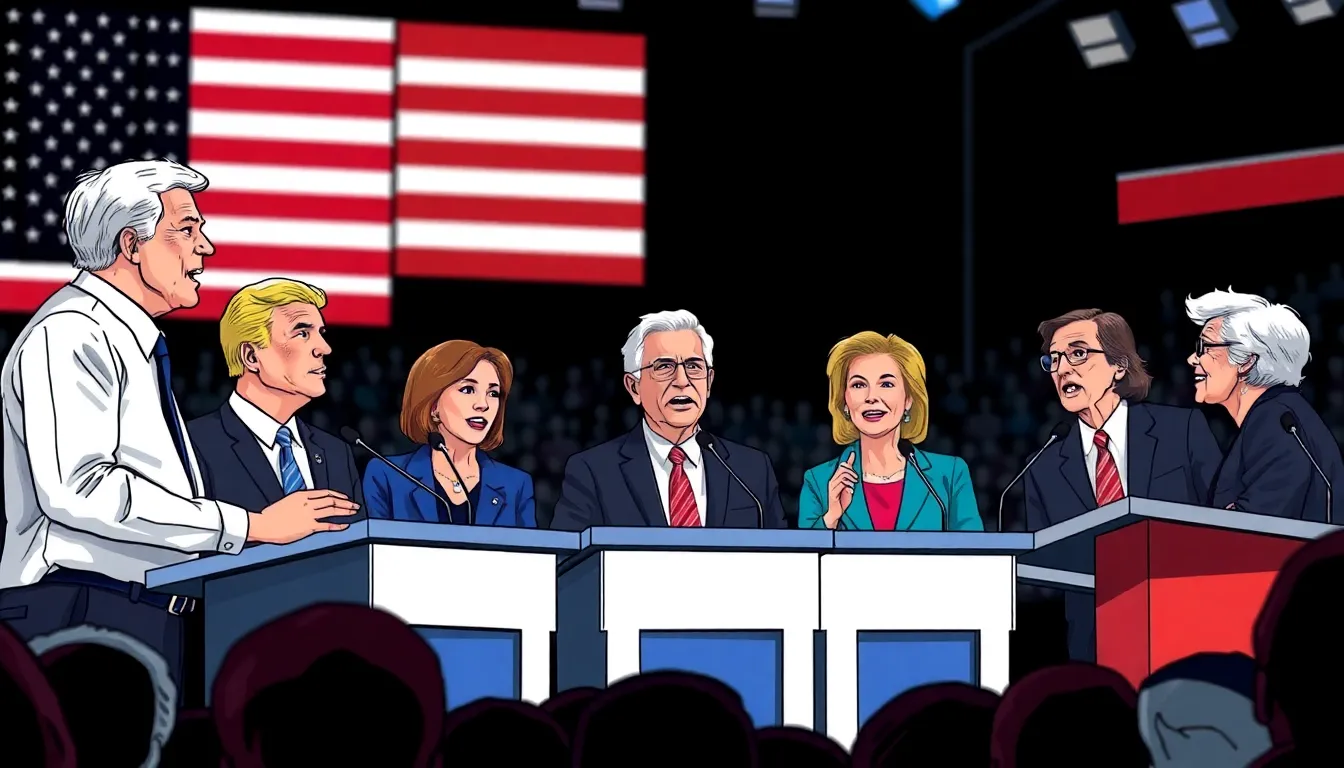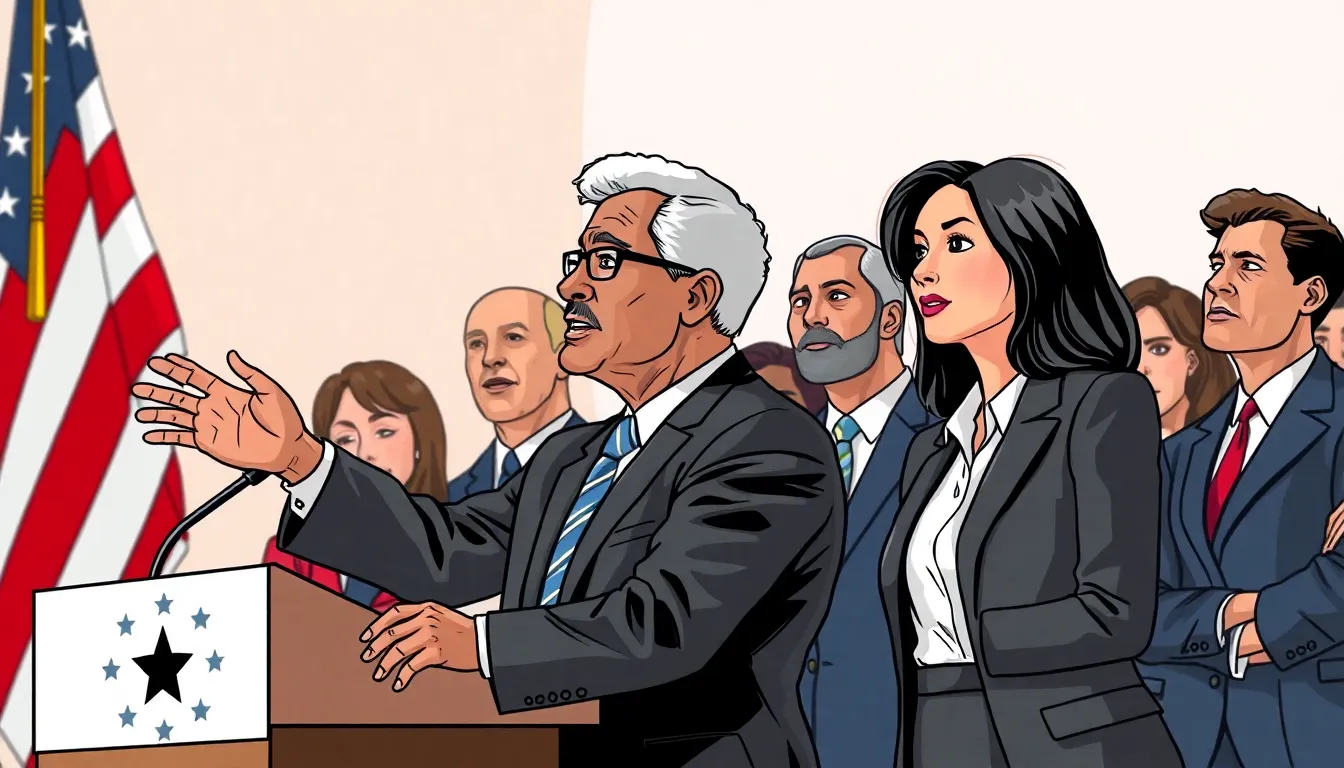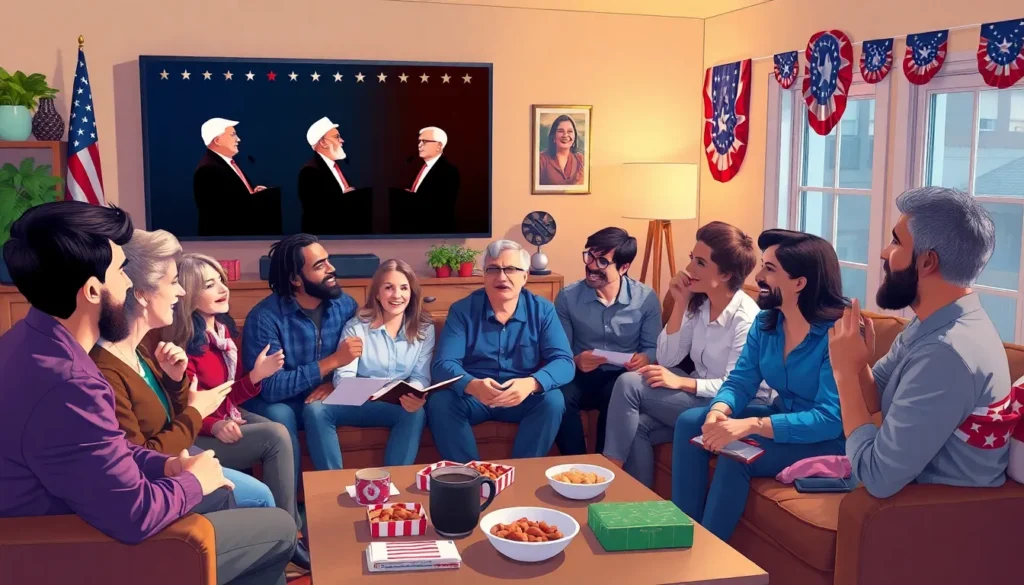As the clock ticks down to the highly anticipated debate, viewers everywhere are glued to their screens, popcorn in hand. But amidst the heated exchanges and passionate arguments, one burning question lingers: what time is the debate over? It’s a question that could spark a lively discussion of its own—after all, timing is everything in the world of politics and entertainment.
Table of Contents
ToggleOverview of the Debate
The upcoming debate generates buzz among viewers, revealing their eagerness to tune in. Anticipation builds as candidates prepare for crucial exchanges. Viewers focus on the impact of the debate’s timing on voter decisions. Competitors face off on critical issues, and their performances will significantly influence public perception.
Schedule details play a vital role. Many seek clarity on the exact end time, as discussions could stretch late into the night. A precise timeframe allows viewers to plan their evenings, either engaging with post-debate analyses or enjoying discussions with friends. Candidates sharpen their strategies, knowing potential shifts in voter sentiment hinge on their presentations.
Topics likely covered include economy, healthcare, and education. Each candidate targets specific demographics, driving narratives that resonate with their bases. Voter concerns guide the conversation, prompting participants to address pressing national issues. Engaging visuals often accompany the debates, capturing the attention of those watching across various platforms.
Interactive elements, such as real-time polling, enhance audience involvement. Poll results may influence perceptions instantly, reflecting live reactions as viewers express preferences. Social media platforms buzz with instant critiques and highlights, fostering a dynamic dialogue.
Timing becomes critical in the post-debate landscape. Early analysis and breakdowns of candidate performances often appear shortly after the event ends. This analysis shapes the narrative surrounding the candidates, influencing perceptions long after the debate clock hits zero. The debate therefore serves as more than an event; it acts as a pivotal moment in shaping electoral outcomes.
Key Issues in the Debate


Viewers eagerly anticipate the discussion of pivotal topics during the debate. Candidates focus on addressing pressing concerns that resonate with voters.
Economy
The economy remains a top priority for candidates, featuring crucial discussions on inflation and job creation. Participants will likely present contrasting approaches to fiscal policies, aiming to persuade undecided voters. Economic recovery strategies may dominate the conversation, with arguments about taxation and government spending strategies. Notably, specific statistics about unemployment rates often bolster candidate claims, underscoring their economic plans’ effectiveness. Expect candidates to emphasize the importance of small businesses, advocating for policies that foster growth and innovation. Engaging with these concepts might sway voter opinions and affect polling results.
Healthcare
Healthcare emerges as another significant issue, with candidates discussing access, affordability, and quality. Specific reforms can impact public sentiment, particularly among families grappling with medical expenses. Candidates are expected to highlight their commitments to improving healthcare systems, addressing prescription drug prices, and expanding coverage options. Many voters are concerned about health equity and access to care, which candidates must acknowledge in their responses. Strategies for managing healthcare costs while enhancing services will capture audience attention. Addressing these topics directly may solidify candidate positions as they navigate complex public opinions and influence electoral outcomes.
Public Reaction
Viewers actively engage with the debate, expressing excitement and curiosity about its timing. Social media platforms fill with real-time discussions and predictions about candidates’ performances. Many viewers prioritize understanding when the debate will conclude to fit post-debate plans smoothly. Instant polls capture opinions, allowing audiences to voice their thoughts on key issues.
Debate timing influences conversations around critical topics like healthcare and the economy. Candidates aim to address inflation and job creation, appealing to undecided voters. Some standout moments spark immediate reactions, with highlights shared widely across digital communities. Critiques emerge quickly, shaping narratives that persist long after the debate ends.
Public reactions vary, with supporters expressing enthusiasm, while opponents voice skepticism. Emotional responses reflect the candidates’ messaging effectiveness on pressing issues. Conversations shift from debate highlights to discussions on voter concerns, demonstrating how performances impact perceptions.
Voter engagement remains high, indicating that the right timing can sway opinions significantly. The anticipation surrounding the debate fuels discussions about its implications for upcoming elections. As viewers digest information, many analyze strategies candidates employ to resonate with their audience. Understanding these dynamics enhances the debate’s role in shaping electoral outcomes.
Expert Opinions
Experts emphasize the significance of timing in political debates. Analysts suggest that when the debate concludes can determine its impact on voter sentiment. Timing not only affects viewer participation but also shapes post-debate narratives. Viewers analyzing the candidates’ performances closely monitor when discussions wrap up, highlighting the importance of scheduled finish times.
Political commentators note that candidates’ discussions around the economy and healthcare will resonate deeply with audiences. Insights shared during the debate can influence undecided voters, particularly on pressing issues like inflation and job creation. It’s critical for candidates to present clear statistics and strategies that appeal to small business owners and working-class families.
Moreover, healthcare remains a pivotal topic. Candidates addressing access, affordability, and quality can significantly impact voter perceptions. Engaging in thoughtful dialogue about medical expenses and health equity enhances a candidate’s credibility and relatability.
Social media analysts report that immediate reactions during the debate play a crucial role in shaping public opinion. Instant polls and real-time discussions allow viewers to voice their thoughts, facilitating active engagement. The dialogue on platforms like Twitter and Facebook helps to crystallize key moments that may influence long-term voter decisions.
Strategists stress the connection between debate timing and electoral outcomes. The right timing for candidate performance analysis can sway opinions beyond the debate itself. Comments made during the event often resonate well after the fact, affecting how individuals view candidates in the weeks leading to elections. Ultimately, expert opinions highlight that success in a debate hinges on impactful messaging, well-timed interactions, and audience engagement.













